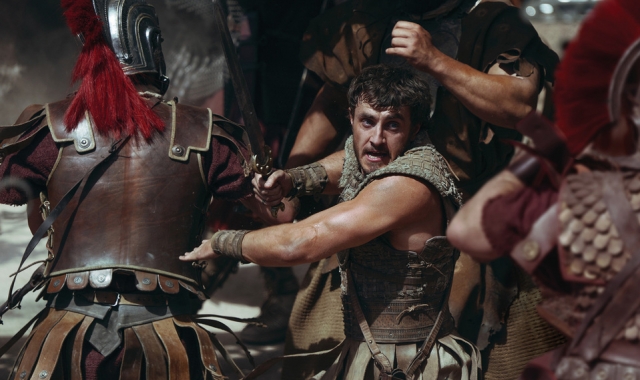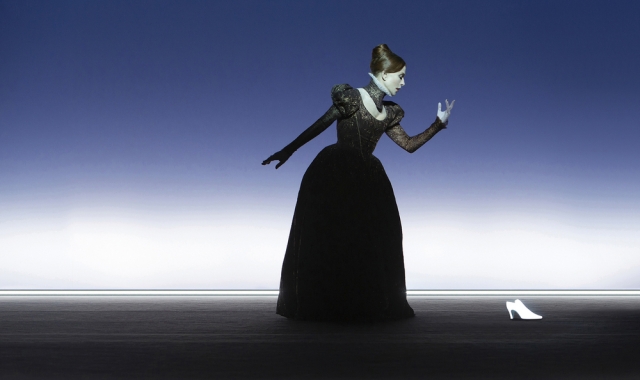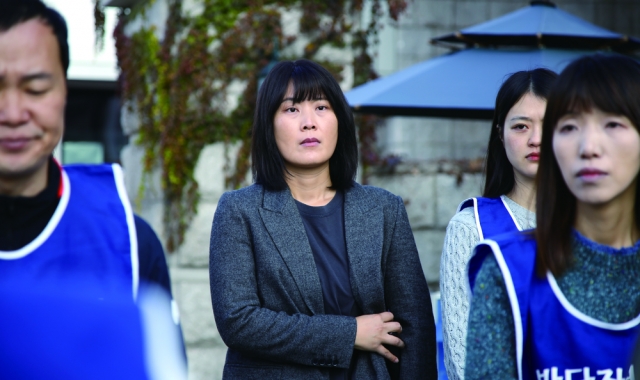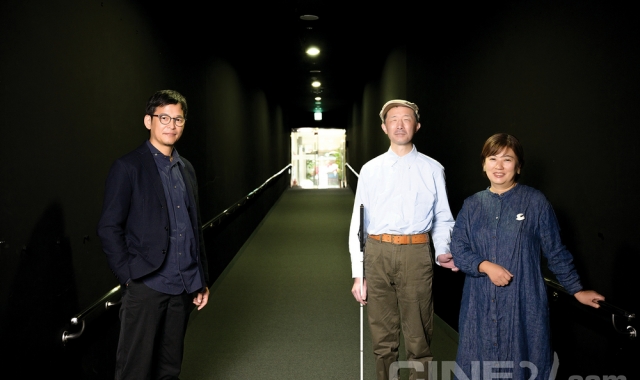
이번 8월 에든버러국제영화제에선 이상한 소리가 들렸다. 예년과 다르게 비평가들도 관객도 영국영화가 얼마나 형편없는지에 대해 얘기하지 않는다는 거였다.
영국 영화업계는 또 다른 영어권 영화 친척인 할리우드 업계만큼 성공적이지 못하다는 열등감과 지속적인 위기감으로 이끌려간다. 영국은 결국 미국으로 넘어가서 부와 명예를 얻게 되는 재능있는 사람들을 양성한다. 그리고 미국 상표를 붙여서 나가는 블록버스터들에 기술자와 스튜디오 공간과 로케이션을 공급한다. 심지어 할리우드가 대중화하고 재해석할 역사를 제공하기까지 한다. 그래서 영국인들은 “그러면서 우린 어째서 성공적으로 볼 만한 영화를 직접 만들 수 없는 걸까?”라며 한탄을 하곤 한다.
지난 10년 동안 스코틀랜드에서 열리는 에든버러영화제는- 남부의 런던영화제보다도- 매해 가을 영국영화의 활력을 시험해볼 수 있는 장소가 돼왔다. 올해 에든버러 작품들은 기억으로는 최고였다고 본다. 열두편 정도의 장편영화들이 상당한 다양성을 지녔고, 관객뿐만 아니라 업계 사람들까지 놀라게 할 만큼 상업적인 가능성을 지닌 작품들이 상영됐다.
영화제 초반 야간 개막작이었던 <와와>(배우인 리처드 그랜트의 부분적으로 자전적인 감독 데뷔작)부터 폐막작 <비즈니스>(젊은 감독 닉 러브의 세 번째 영화)까지 와이드 스크린의 지적인 영화들이 포진해 있었다. 두 영화 모두 근래 역사의 특정시기를 배경으로 국외에 거주하는 영국인들의 모습을 담고 있다. <와와>는 70년대 초 영국의 통치에서 독립하기 직전 스와질란드에서 일어나는 이야기이고, <비즈니스>는 80년대 대처 총리 통치기간 당시 스페인과 영국간 도망범 소환조약의 부재로, 스페인 남부해안에서 번성할 수 있었던 영국 범죄자들의 이야기를 담고 있다.
두 영화 모두 특권적인 생활을 즐겼던 영국사회의 소그룹들에 초점을 맞추고 있다. <와와>에서는 “지배자”인 상류 계층을, <비즈니스>에서는 런던내기 범죄 계층들을 그리고 있다. 두 영화는 모두 최상급으로, 각각 숙련된 배우들의 환상적인 연기와 시각적 매혹을 엮어내면서 정확하게 그 사회적 환경을 잡아내고 있다. 이들 두 영화 사이 어딘가에 할리우드가 “하이 컨셉”이라고 부를 만한 매끈한 코미디인, TV감독 줄리언 제럴드의 장편 데뷔작 <킹키 부츠>(Kinky Boots)가 자리잡고 있다. 런던의 드랙퀸이 재정적 어려움에 빠진 미들랜드 지역 신발공장을 돕는 이야기다. 대단한 영화는 아니지만 좋은 연기로 관객을 즐겁게 해주었고, 흑인배우 취웨텔 에지오포가 나이트클럽에서 노래를 부를 땐 <록키 호러 픽처쇼>에서 팀 커리가 신나게 부르던 것을 연상시킨다.
그러나 심사위원 대상과 관객상을 모두 탄 영화는- 평단과 대중적 기호를 모두 만족시킨 드문 영화- 더욱더 놀라웠다. 영국과 남아프리카공화국이 공동 제작한 <Tsotsi>는 남아프리카 백인 게빈 후드가 감독한 영화로 요하네스버그 흑인거주지구의 살기 넘치는 젊은 흑인 범죄자를 중심으로 이야기가 벌어진다. 놀라운 것은 이 영화가 심각한 사회이슈를 다루면서도 학구적인 방식이나 설교조가 아닌 매우 영화적인 방식으로 풀어나가고 있다는 것이다. 이 영화 역시 와이드 스크린으로 멋진 영상을 제공하면서 처음부터 끝까지 관객을 휘어잡는다. <와와>와 마찬가지로 배급사들은 이 영화를 구매하려고 서로 앞다투어 나가고 있었다. 그리고 9월 토론토영화제에서 더 많은 배급사들이 영화에 몰려들 것이 분명하다.
놀라운 것은 에든버러영화제의 영국영화 라인업에 올해 최고의 영국영화가 빠져 있었음에도 훌륭해 보였다는 것이다. 이 영화는 9월 중순에 개봉할 예정으로, 20살의 영국 배우 키라 나이틀리가 출연한 제인 오스틴의 소설 <오만과 편견>의 놀랄 만한 새 버전이다. 영국영화들이 복귀한 것 같다. 적어도 다음 위기가 올 때까지는.
At the Edinburgh Film Festival this August, there was a strange sound in the air - of critics and audiences NOT saying how terrible the British movies were.
The U.K. film industry thrives on a sense of perpetual crisis and a feeling of inferiority at not being as successful as its other English-language cousin, Hollywood. The U.K. nurtures talent which goes on to fame and fortune in the U.S.; it supplies technicians, studio space and locations to blockbusters which go out under an American label; and it even provides history for Hollywood to popularise and re-interpret. So why, the British like to moan, can't we make successful, watchable films of our own?
For the past decade, the Edinburgh festival up in Scotland - rather than the London Film Festival down south - has been the place to test the pulse of British cinema every autumn. This year's collection was one of the best in memory: a dozen or so feature films of considerable diversity and - to everyone's surprise, from audiences to industry reps - commercial potential.
Intelligent, widescreen entertainment was to the fore, from the opening night film, "Wah-Wah" (the semi-autobiographical directing debut of actor Richard E. Grant), to the closer, "The Business" (the third feature by young director Nick Love). Both were set among British expats during specific periods in recent history: "Wah-Wah" in Swaziland, just prior to the country's independence from British rule in the early '70s, "The Business" on Spain's southern coast during the Thatcherite '80s when British criminals were able to prosper thanks to the lack of any extradition treaty between Spain and the U.K.
Both focus on small sections of British society enjoying a privileged lifestyle: in "Wah-Wah" members of the "ruling" upper class, and in "The Business" members of the Cockney criminal class. Each catches its milieu with incredible accuracy, mixing terrific performances by experienced actors with visual allure, and top-class.
Somewhere between these two films is TV director Julian Jarrold's debut feature, "Kinky Boots," a slick comedy that Hollywood would call "high concept": a London drag queen helps out a financially ailing Midlands shoe factory. It's not a great film, but it IS a well-acted audience-pleaser, with black actor Chiwetel Ejiofor performing his night-club songs with all the relish of Tim Curry in "The Rocky Horror Picture Show."
But the film that won both the jury's top prize and the audience award - in a rare conjunction of critical and popular tastes - was even more surprising: the U.K.-South African coproduction, "Tsotsi," directed by a white South African, Gavin Hood, and centred on a murderous young black criminal in a Johannesburg township. The surprise was that the film dealt with serious social issues but in a highly cinematic, not academic and preachy, way. Again, it is in widescreen, looks fabulous, and grips the viewer from start to finish. As with "Wah-Wah," distributors were falling over each other to buy it, and more will doubtless follow when the films screen in the Toronto festival in September.
The amazing thing was that the British lineup in Edinburgh still managed to look good even without the best British movie of the year: a stunning new version of Jane Austen's novel, "Pride and Prejudice," starring 20-year-old English actress Keira Knightley, which opens in mid-September. The Brits seem to be back - at least until the next crisis arrives.






